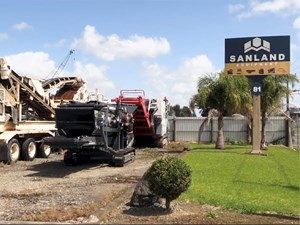Comment: Government gives with one hand and takes with the other
The RUC reduction came into effect on 21 April and will last three months
 |
|
As both minister of transport and minister of workplace relations and safety, Michael Wood is responsible for the RUC reduction scheme and Fair Pay Agreements
|
In my role advocating for the road transport industry in Wellington, I’m used to taking the rough with the smooth. There are issues where we’re able to convince ministers and officials to our way of thinking and then there’s the advice that just falls on deaf ears. In recent weeks, both scenarios have played out.
The rapid passing of the Road User Charges (Temporary RUC Reduction Scheme) Amendment Bill is the culmination of a process where the Government was open to advice and listened to the industry. The end result is the design of a relatively simple scheme to enable the 36% reduction in RUCs as part of the fuel price relief package.
The RUC reduction came into effect on 21 April and will last three months. Operators purchasing RUCs during the three months are required to complete an online declaration stating they are only purchasing charges required for that period.
The legislation provides Waka Kotahi with the ability to issue invoices if RUC licences are found to have been bought for distances that would obviously carry beyond the three-month reduction period.
Overall, this is a good result for operators, will require minimal additional administration, and is straightforward to understand. However, in the same week the RUC reduction mechanism was settled, the Government also began passage of the highly-controversial Fair Pay Agreements Bill through Parliament.
Fair Pay Agreements (FPAs) are old-fashioned national awards in a new form. They will set minimum terms and conditions for all workers in the one industry, or occupation, regardless of what their or their employer’s circumstances are.
There’s scope for some flexibility around regional differences, financial hardship, etc., but from what I understand, these are unlikely to be significant. Once the legislation is enacted, an FPA will be imposed on industries like ours basically by union request.
An FPA is triggered by just 10% of workers in an industry being in support of the proposal. This will mean industry representatives being forced to negotiate with unions on minimum rates of pay and conditions on behalf of all operators across the whole country.
Ia Ara Aotearoa Transporting New Zealand has always been opposed to any form of centralised wage bargaining and is joining with other industry bodies and business groups to fight FPAs the whole way.
Unfortunately, it’s a fight that we’re destined to lose. Labour has a majority in Parliament and also has support from other left-wing parties, the Greens and the Maori Party. The expectation is that the legislation is sure to pass through the rest of its stages later this year.
To say I’m concerned about what the outcomes could be for our industry is a major understatement. With so many increasing costs and so little margin in freight transport, road transport businesses need to retain flexibility when it comes to their workforce and how they structure their operations.
Operators, particularly those in smaller provincial centres, could well be forced into pay rates designed for big city operators and employment structures that they just cannot afford.
Frankly, in the 21st Century, it’s absurd to think that individual businesses will have
little-to-no influence in the pay-setting process even though this is fundamental to their operations, the management of their staff, and the ongoing financial viability of the business.
For employees, too, FPAs are counterproductive. A staff member’s hard work, skills, commitment to the job, and productivity will be more difficult to recognise, and there will be less scope for flexible working arrangements. This will make industries subject to FPAs far less attractive in the modern labour market.
The RUC reduction design and FPA legislation taking place in parallel exemplifies the difficulties for businesses dealing with the Government. The fuel relief package is a help to operators at a difficult time and will relieve some of the cost pressures they are currently facing.
On the other hand, the imposition of FPAs means that our industry could well be whacked with much-higher long-term operating costs and less flexibility in employing staff.
Find new and used heavy machinery for sale in NZ
Keep up to date in the industry by signing up to Deals on Wheels' free newsletter or liking us on Facebook.





.jpg)


.jpg)


.jpg)
.jpg)
-(1).jpg)



